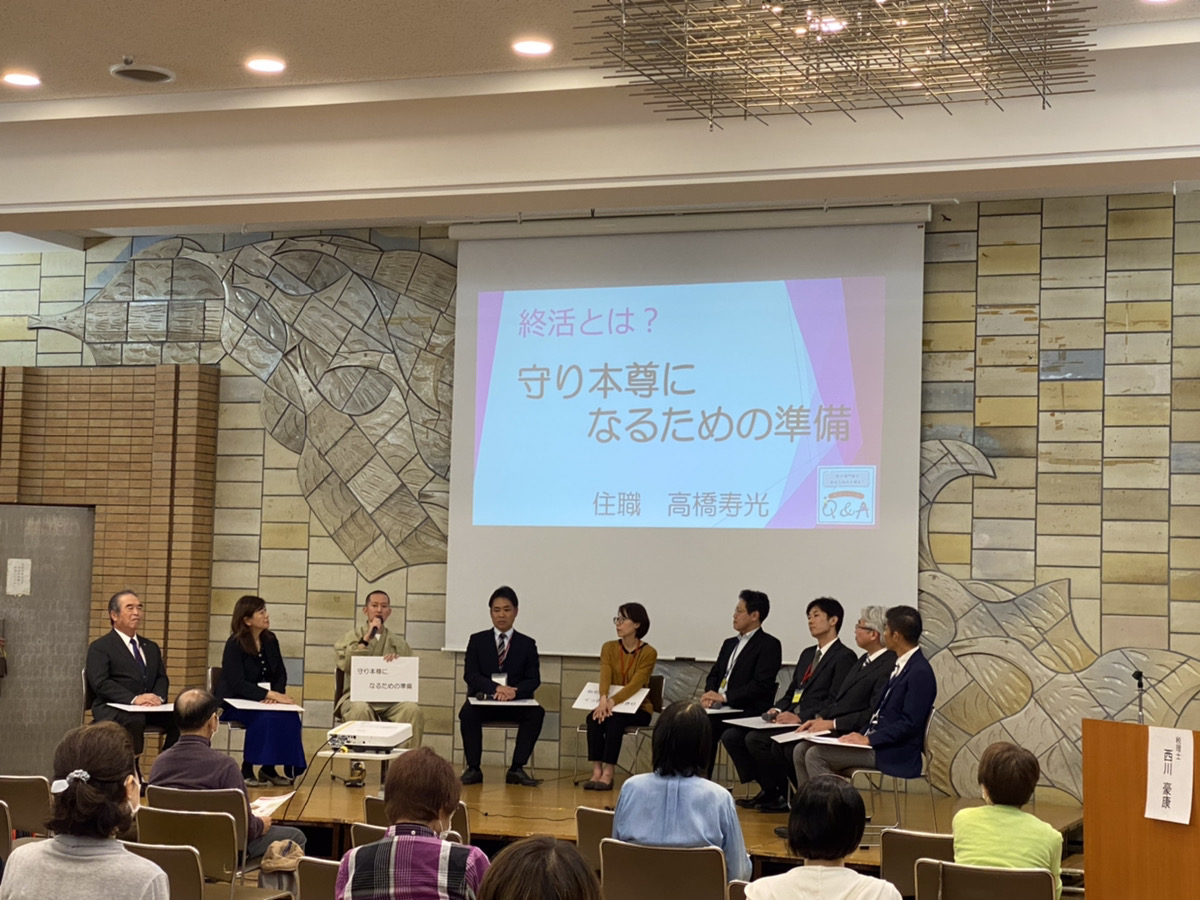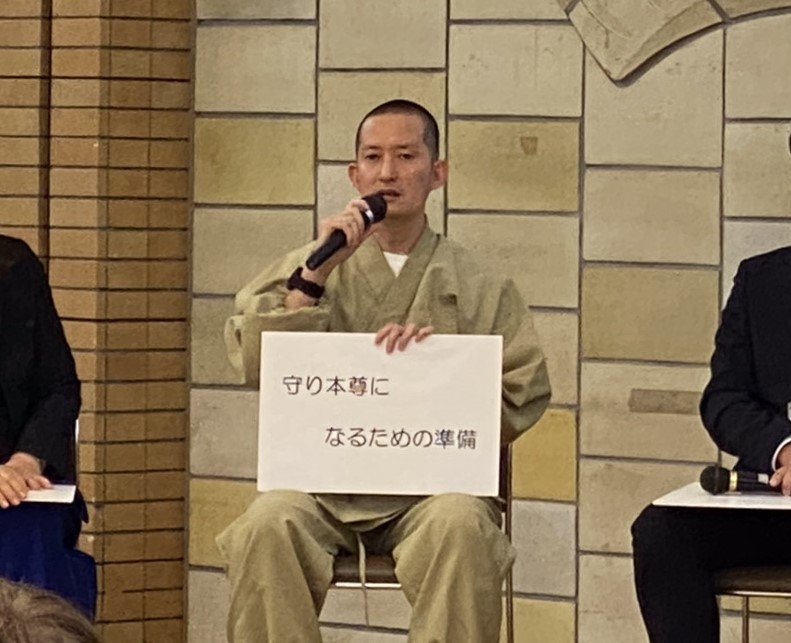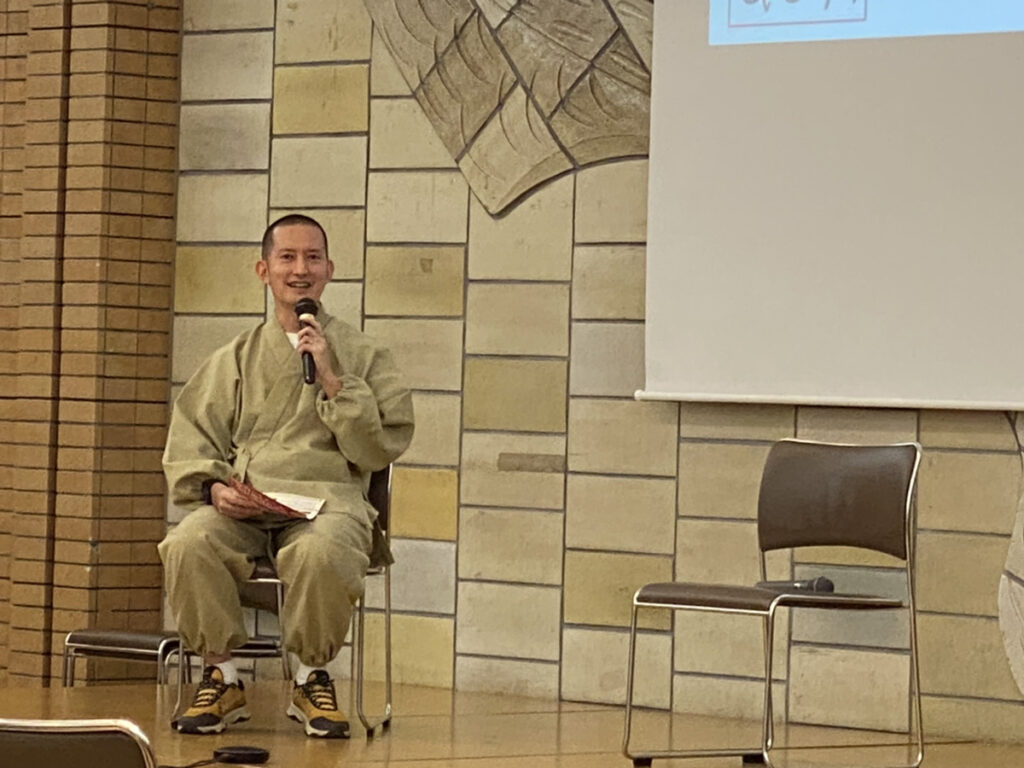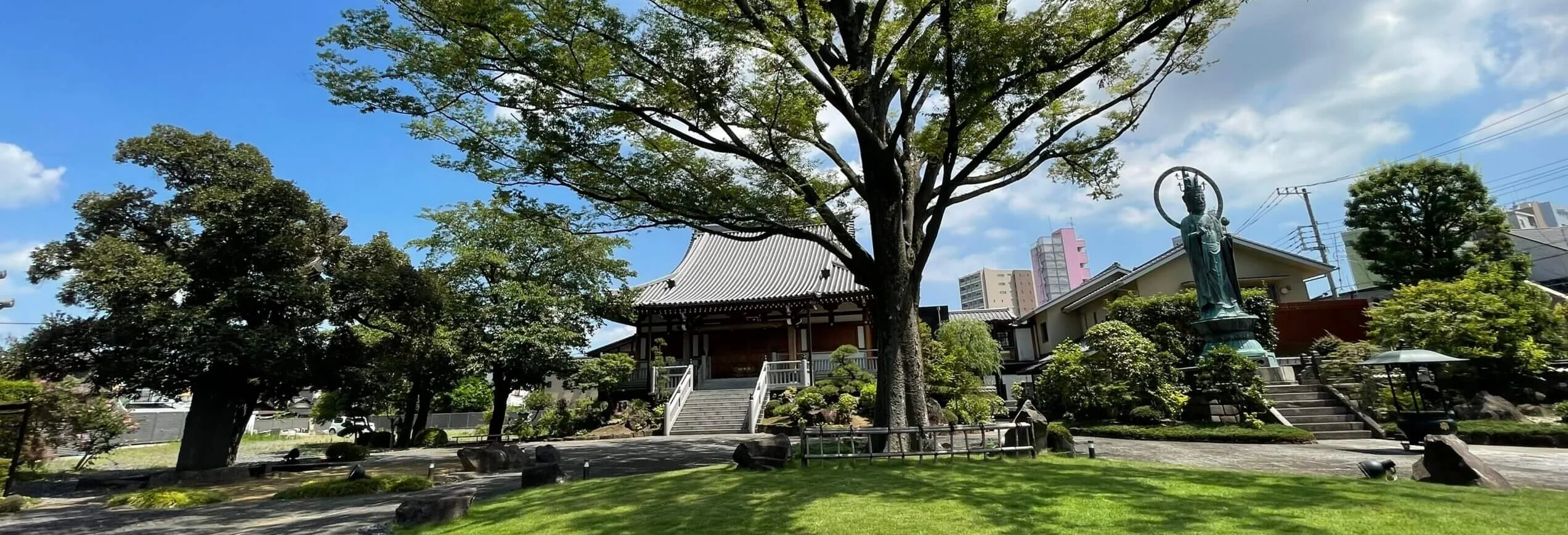On the 21st of last month, the 9th Akabane Seminar & Free Individual Consultation (sponsored by Kita Ward, Tokyo) was held at Akabane Kaikan.

This is a local event based on the concept of "solving local problems locally," where people can listen to experts speak about issues that may arise in people's lives from the cradle to the grave, as well as receive individual consultations. Shokoji Temple has participated since the event's inception as the person in charge of dealing with grave-related issues and problems.
Here we will introduce some of the content that was discussed on the day.
Graves have long been treasured as a place to hold memorials for ancestors. Until a generation ago, graves were passed down and protected by families, but in recent years, with the trend toward nuclear families and declining birth rates, it has become difficult for families to maintain graves, and this is recognized as a common issue for many people.
The issues faced by people who are concerned about their graves can be broadly divided into:
・I don't know what to do with my grave because I don't have a successor.
・I have a successor, but I don't want to burden him with the grave
There are two options. And many of these people are considering the option of a "permanent memorial grave."
The term "perpetual memorial grave" refers to a grave that satisfies both of the following: 1) no successor required, 2) no maintenance fee required. Some people also envision 3) a grave that will be memorialized for the deceased for all eternity.
At the Akabane seminar, we spoke about the religious value that should be sought in perpetual memorial graves in times when it is difficult to entrust the inheritance of one's grave to a successor and when one wants to avoid the financial burden of management fees as much as possible.
Its function is to serve as a guardian deity for those left behind.

It is not appropriate for oneself to decide whether or not one will visit the grave after one's death, or whether someone will visit it. There is no guarantee that a quarrelsome successor will not visit the grave of their parents. Even if there is no successor, people who took care of the family in the past but have forgotten about it may come to visit the grave.
No matter how we evaluate ourselves, for those who come to pray, that person is a precious presence, someone we want to face even after death. I believe that for such people, the person who has passed away should fulfill the role of a target to face, that is, a guardian deity.

This role will not continue forever. Thirty years at most is enough. This is because those who knew the person personally will eventually pass away and go to the Pure Land, and will no longer need the guardian deity. Just as a house without an inhabitant decays easily, a grave without anyone to pray to will also decay.
If you want to preserve the grave for all eternity, you need to continue to have people who will pray for the deceased, that is, successors who will look after the grave. This is not possible with a permanent memorial grave, which has the condition that successors cannot look after the grave, and there is no need to do so in the first place.

Live your life to the fullest in this world. When you go to the Pure Land, you will serve as the guardian deity of this world for a while. When that role is over, enjoy life in the Pure Land to the fullest. Although you will need a grave when you die, there is no need to be attached to it forever.
For the above reasons, we do not say that Shokoji's permanent memorial graves will be memorialized forever. If you agree with this idea, please contact us and we will be happy to help you.


